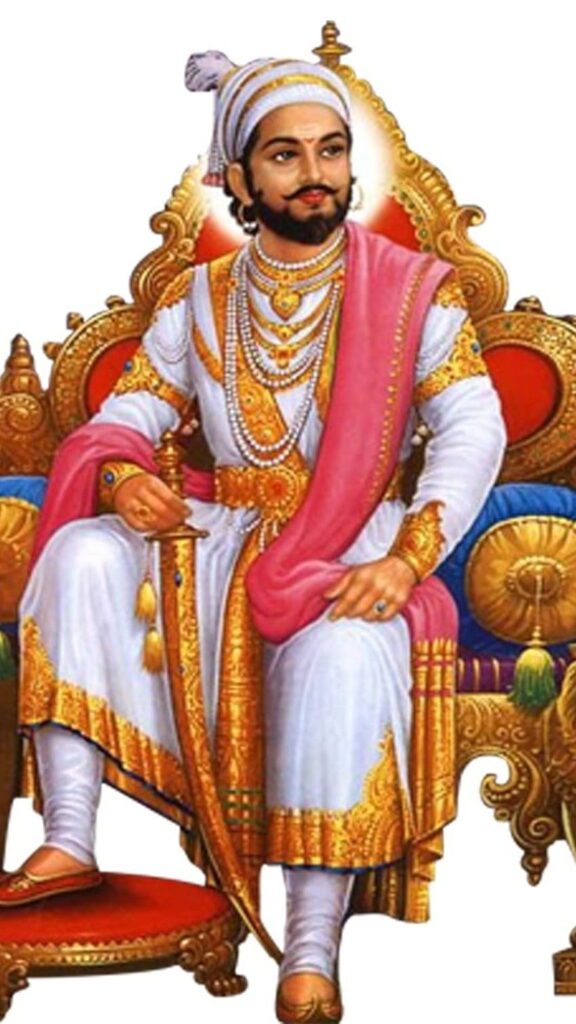7 Leadership Lessons from Shivaji Raje, the Maratha Warrior

Introduction
Shivaji Raje, the great Maratha warrior, is one of the most revered figures in Indian history. His bravery, strategic brilliance, and unwavering commitment to Swarajya (self-rule) established the powerful Maratha Empire. Born in 1630, Shivaji Raje led a remarkable life, challenging the mighty Mughal Empire and various other adversaries to protect his people and culture. His legacy continues to inspire millions even today.
Early Life of Shivaji Raje
Shivaji Raje was born on February 19, 1630, at the Shivneri Fort in present-day Maharashtra. He was the son of Shahaji Bhosale, a prominent general in the Deccan Sultanates, and Jijabai, a deeply religious and visionary mother. Jijabai played a crucial role in shaping the character of Shivaji Raje, instilling in him a deep sense of duty, righteousness, and love for the land.
The Foundation of Swarajya
From a young age, Shivaji Raje displayed remarkable military and leadership skills. At the age of 16, he captured the Torna Fort, marking the beginning of his campaign to establish Swarajya. His guerrilla warfare tactics and diplomatic skills helped him expand his territory rapidly.
Shivaji Raje focused on fortification and built an extensive network of forts across Maharashtra, which served as strongholds against enemy invasions. His keen understanding of geography and warfare gave him an edge over the powerful Mughal and Adilshahi forces.
Battles and Military Prowess
Shivaji Raje was known for his asymmetric warfare tactics, including guerrilla warfare, swift cavalry attacks, and surprise raids. Some of his most significant battles include
1. Battle of Pratapgad (1659)
One of his early and defining victories, this battle was fought against Afzal Khan, a formidable general of the Adilshahi Sultanate. Using his strategic brilliance, he lured Afzal Khan into a trap and defeated his massive army.
2. Battle Against Shaista Khan (1663)
In a daring night raid, Chhatrapati Shivaji attacked the Mughal governor Shaista Khan in Pune. This audacious attack sent shockwaves across the Mughal Empire and demonstrated Shivaji Raje’s military genius.
3. The Escape from Agra (1666)
After being invited to Agra by Aurangzeb, Shivaji Raje was imprisoned. However, his quick thinking and clever disguise allowed him to escape, returning safely to Maharashtra and regaining his empire’s strength.
4. Battle of Sinhagad (1670)
Led by the valiant Tanaji Malusare, this battle was crucial in reclaiming the Sinhagad Fort from the Mughals. Shivaji Raje’s deep trust in his commanders and their unwavering loyalty played a vital role in this victory.
Coronation as Chhatrapati
On June 6, 1674, Chhatrapati Shivaji was formally crowned as Chhatrapati (Emperor) at Raigad Fort. This grand coronation signified the formal establishment of the Hindavi Swarajya, a self-ruled kingdom free from foreign oppression. His reign emphasized justice, administration, and military strength.
Shivaji Raje’s Administrative Reforms
Apart from being a great warrior, Chhatrapati Shivaji was an exceptional administrator. His governance was marked by efficiency and inclusivity. Some key administrative policies include:
1. Ashtapradhan Mandal
Shivaji Raje established an eight-minister council, known as Ashtapradhan, to efficiently manage various aspects of governance. This system ensured smooth administration and policy implementation.
2. Strong Naval Force
Recognizing the importance of coastal security, Shivaji Raje built a powerful navy. He constructed strategically located forts such as Sindhudurg and Vijaydurg, protecting the western coastline from foreign invasions.
3. Revenue System
He introduced a fair taxation system that reduced the burden on farmers and promoted economic growth. The Chauth and Sardeshmukhi taxes were levied to sustain the kingdom while ensuring financial stability.
Respect for Religion and Culture
Shivaji Raje was known for his secular policies and respect for all religions. Unlike other rulers of his time, he treated people of different faiths with dignity. He ensured that temples and places of worship were protected and did not engage in forced conversions. His rule promoted unity among diverse communities
Legacy of Shivaji Raje
Shivaji Raje’s impact on Indian history is immense. His vision of Swarajya and strong leadership laid the foundation for the Maratha Empire, which later became a dominant force in India. His legacy continues to inspire leaders, historians, and common people alike.
Even today, his name evokes pride and patriotism among Indians. Numerous monuments, universities, and institutions are named in his honor. His ideals of justice, courage, and self-rule remain relevant in modern governance and leadership
Conclusion
Shivaji Raje was not just a warrior but a visionary leader who changed the course of Indian history. His military strategies, administrative policies, and unwavering dedication to his people make him one of the greatest leaders of all time. His dream of Swarajya lives on, inspiring countless generations to strive for justice and self-reliance.
The life of Chhatrapati Shivaji is a shining example of what true leadership, perseverance, and patriotism can achieve. His story is not just a chapter in history but a guiding light for the future.

1 thought on “Shivaji Raje – The Legendary Maratha Warrior and Visionary Leader”